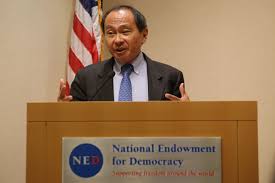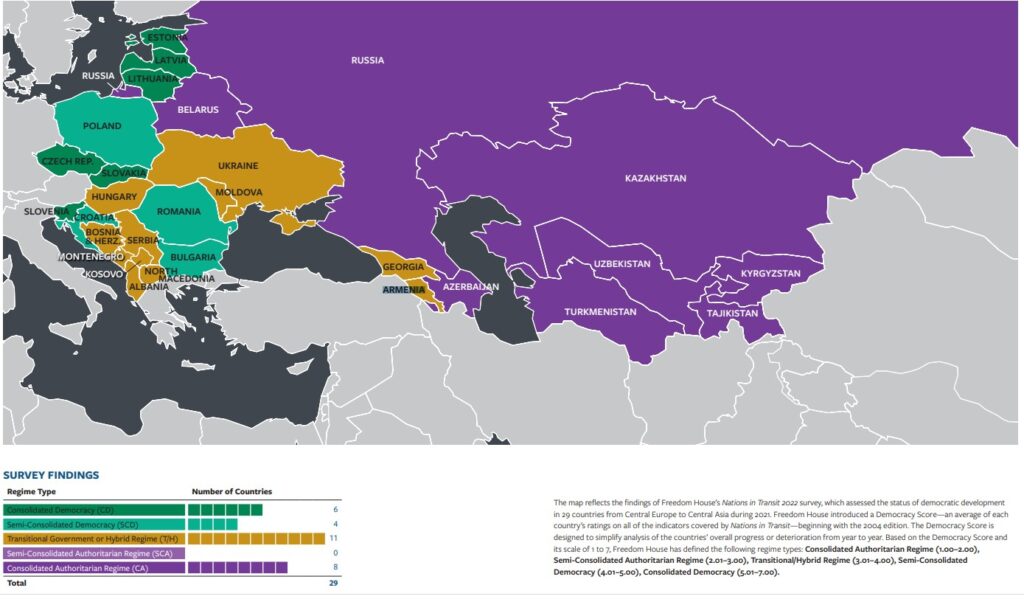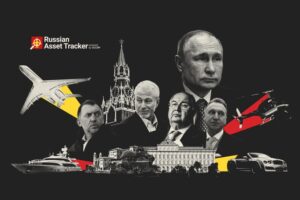“Ukrainian democracy continues” as Russia is failing to achieve nearly all of its war objectives in Ukraine, a senior White House official said on Sunday. “In our view, Russia has already lost, has already lost many of its initial war aims,” Jon Finer, deputy national security adviser, said on NBC’s “Meet the Press,” The Wall Street Journal reports.
Moscow had hoped to quickly undermine or overthrow the Ukrainian government, he said, but Ukrainian President Volodymyr Zelensky remains “firmly entrenched in power and Ukrainian democracy continues.”
 Russia’s attack on Ukraine prompted outrage as democracies in Europe, North America and the Pacific Rim solidified alliances, shoring up financial and military support for Kyiv. Germany ditched its ban on transferring arms to war zones. Traditionally neutral states such as Singapore and Switzerland were jolted into applying sanctions, notes analyst Ian Birrell.
Russia’s attack on Ukraine prompted outrage as democracies in Europe, North America and the Pacific Rim solidified alliances, shoring up financial and military support for Kyiv. Germany ditched its ban on transferring arms to war zones. Traditionally neutral states such as Singapore and Switzerland were jolted into applying sanctions, notes analyst Ian Birrell.
But there remains a disturbing failure to see, alongside Kremlin sabre-rattling on Finland, Sweden and Baltic states, that these are opening salvos in the seismic struggle of our time between autocracy and democracy.
Yet the world’s largest democracy ‘views the division between democracies and autocracies over Ukraine as largely accidental,” notes Carnegie analyst Ashley Tellis, who observes that Modi’s India “judges the dividing lines to be drawn on the basis of national interests rather than on the character of the regimes.”
Labor solidarity
Ukraine’s democratic resilience will receive a boost from the U.S. Agency for International Development (USAID), which plans to invest $131 million to counter the impact of Russia’s war of aggression. The funds “will help address the horrific impact of the ongoing war on civilians, the private sector, government institutions, and civil society,” said USAID.
 More specifically, the funds, which reflect the priorities of the European Democratic Resilience Initiative (EDRI) will help the Ukrainian government combat corruption; build defenses against cyberattacks, “disinformation, and other tools of Kremlin aggression; sustain democratic reforms; strengthen the healthcare system; and foster economic growth that benefits Ukrainians. This funding complements which includes support for independent media, countering disinformation, and protects activists and vulnerable groups in Ukraine and surrounding countries.
More specifically, the funds, which reflect the priorities of the European Democratic Resilience Initiative (EDRI) will help the Ukrainian government combat corruption; build defenses against cyberattacks, “disinformation, and other tools of Kremlin aggression; sustain democratic reforms; strengthen the healthcare system; and foster economic growth that benefits Ukrainians. This funding complements which includes support for independent media, countering disinformation, and protects activists and vulnerable groups in Ukraine and surrounding countries.
President Biden plans to nominate Bridget Brink to serve as the next U.S. ambassador to Ukraine, the White House announced Monday (see below). The move is intended to fill a position that has remained officially vacant for three years — and is now even more crucial during the Russian invasion, The Post reports.
 Brink’s “decades of experience make her uniquely suited for this moment in Ukraine’s history,” the State Department said in a statement Monday.
Brink’s “decades of experience make her uniquely suited for this moment in Ukraine’s history,” the State Department said in a statement Monday.
“Bridget has been fighting for the freedom and sovereignty of countries in Europe’s East for her entire career,” said National Endowment for Democracy (NED) President and CEO Damon Wilson. “She believes US interests advance as we support democracies. There is no one better to help Ukraine defeat the biggest threat to Europe in our lifetimes,” he tweeted.

Former NED board member Francis Fukuyama
Many observers continue to maintain that the two sides are heading for a prolonged stalemate that can only be resolved by a negotiated settlement, adds Stanford’s Francis Fukuyama. I believe this is wrong and that the Ukrainians will succeed in driving the Russians out of the territories they now hold. There are several reasons for this, he writes for American Purpose:
- First, the United States and its NATO allies, responding to Volodymyr Zelenskyy’s pleas for military assistance, are now sending much larger quantities of equipment…. Though we do not know what Ukrainian losses have been to date, some speculate that Kyiv may now actually have parity in armored vehicles, leaving Moscow far short of the 3-1 size advantage typically needed for a successful offensive.
- Russian morale is likely to continue to be extremely low…. The Ukrainians are even more highly motivated to win, now that they have witnessed the atrocities carried out by the Russians in areas they have occupied.
- It is not clear that the Russians are capable of learning lessons and adapting quickly to changed circumstances….. The Ukrainians, by contrast, have gotten very good at devolving authority to lower command levels while retaining overall strategic control of their forces……RTWT
 “If the Kremlin succeeds in subjugating a sovereign, democratic Ukraine, it will mark the first time that an authoritarian power has overthrown a freely elected national government in the region since the end of the Cold War,” Freedom House analysts Mike Smeltzer and Noah Buyon write in the latest Nations in Transit report.
“If the Kremlin succeeds in subjugating a sovereign, democratic Ukraine, it will mark the first time that an authoritarian power has overthrown a freely elected national government in the region since the end of the Cold War,” Freedom House analysts Mike Smeltzer and Noah Buyon write in the latest Nations in Transit report.

OCCRP
Ukraine has long been “a front-line state in the struggle between European rule-based order and Russian kleptocratic autocracy,” note Chatham House experts Mathieu Boulègue and Orysia Lutsevych. “Despite Russia’s aggression, economic pressure and information war, Ukraine has managed to preserve its statehood and democratic reforms,” they observed in 2020.
Observers “should drop the idea that Putin wants an off-ramp,” said former U.S. Ambassador to NATO Kurt Volker discusses whether Russian President Putin will want to negotiate amid new satellite images showing possible mass graves near Mariupol.
“Putin may keep attacking and trying to seize all of Ukraine‘s southern coast,” he told MSNBC. ‘Or he may take a pause. Either way, he will not stop. That’s why we have to help Ukraine win.”
 All possible measures short of direct military confrontation must be taken in order to punish, contain and eventually end Russia’s aggression against Ukraine, says an open letter by 155 experts from National Endowment for Democracy partner New Eastern Europe.
All possible measures short of direct military confrontation must be taken in order to punish, contain and eventually end Russia’s aggression against Ukraine, says an open letter by 155 experts from National Endowment for Democracy partner New Eastern Europe.
Solidarity Center partner Labour Initiatives, a local non-governmental organization that supplies legal and other assistance to Ukraine’s workers and unions, has launched a video series (above), dubbed Wartime Labor Diary, featuring interviews with workers that document their heroic efforts during wartime.

 The attacks were simple but effective, targeting the signal control cabinets essential to the functioning of the railways, members of the activist network said. For days on end, the movement of trains was paralyzed, forcing the Russians to attempt to resupply their troops by road and contributing to the snarl-up that stalled the infamous 40-mile military
The attacks were simple but effective, targeting the signal control cabinets essential to the functioning of the railways, members of the activist network said. For days on end, the movement of trains was paralyzed, forcing the Russians to attempt to resupply their troops by road and contributing to the snarl-up that stalled the infamous 40-mile military 





